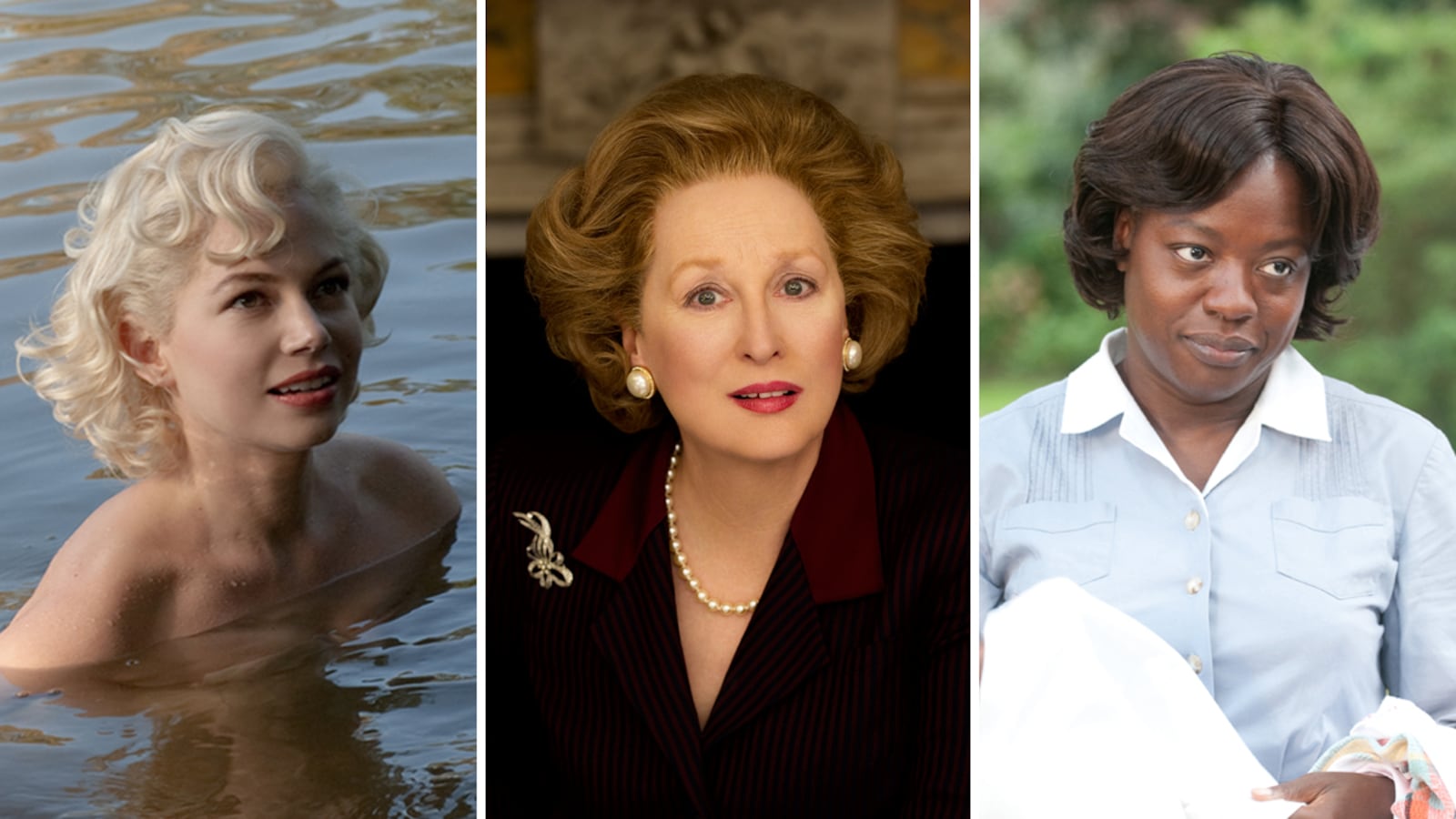Oscar nominations are Tuesday, and the Best Actress race has turned into the year’s most exciting, talent-rich contest. With a dozen actresses having plausible claims upon one of the five nomination slots, the heated struggle is in stark contrast to most years, when the lack of interesting parts for women makes the category a sleepy backwater.
However, despite the abundance of talent in the category, the race for the top prize has settled into a single question: Can Anyone Stop Meryl? Despite being a 16-time nominee and a two-time past winner, Meryl Streep hasn’t won since Sophie’s Choice in 1983, causing her to appear like a perennial also-ran, leading to a mounting sense that It’s Her Time (Again).
Unfortunately, the Academy’s collective need to bestow another trophy upon Streep has come to a boiling point just as she was in one of the most misguided films she has been associated with in her long career. While Streep’s impression of former British prime minister Margaret Thatcher in The Iron Lady has struck critics has a fairly uncanny simulacrum, the film as a whole has left the critical establishment unamused. With a highly mediocre Rotten Tomatoes score of 55 percent positive ratings from the top critics, the film is not even mentioned as a contender in any other major category. Any other year, The Iron Lady would likely be joining other misfires on the bench of Oscar’s forgotten had this quirk in history not deemed that its star is a near-lock on the Best Actress prize.

But the Streep consensus has left the door open for a tiny ray of doubt to poke through. There is no formal polling of Oscar voters, and buzzed-about “indicators,” such as critics' lists and the Golden Globe Awards, can point prognosticators in the wrong direction as often as they point in the right. To bring down a giant, you need a giant slayer, and currently there are only two contenders for that job, both of whom bring major drawbacks of their own.
Michelle Williams, who impersonated Marilyn Monroe in My Week With Marilyn, brings many of the qualities that Oscar looks for in its recent Best Actress winners: youth, glamour, and a historical impersonation. But her film is struck by the same troubles that plague Iron Lady: very few people like it much. The film was nearly locked out of critics’ best-of lists, and also is not listed for any of the other major categories (other than Kenneth Branagh being a likely nominee for Best Supporting Actor).
In contrast, the other big challenger, according to pundits—Viola Davis for The Help—is actually hurt by the presence of another strong contender from her film. After her win at the Golden Globes on Sunday, Octavia Spencer is seen as the heavy favorite to win the Best Supporting Actress Oscar. While the film was received mildly well and stands a good chance of taking a Best Picture nomination, it is not universally beloved by critics; its schmaltzy, message-movie sensibility struck an old-fashioned note with many. Oscar voters, in their crass calculations, may decide that with Spencer, one prize is enough for The Help’s help.
Let’s look at some of the other rules governing the hearts of Oscar voters as they consider the acting trophy.
BEAUTY BEFORE AGE: The Best Actress category has become a showplace largely for glamorous stars in their late 20s to mid-30s first demonstrating their serious dramatic skills. The average age of winners in the last decade has been 35. (It is 44 in the Best Actor category for the same period.) Since Gwyneth Paltrow took the prize and gave birth to the current Young Women dynasty in 1998, only two actresses over 40 have won: Helen Mirren and Sandra Bullock. (Nine 40-plus men have won in the same period.)
ADVANTAGE: Michelle Williams.
HISTORIC IMPRESSIONS: Oscar’s perennial favorite form of acting. The past decade has seen actors and actresses take home trophies for their impersonations of Edith Piaf, June Carter Cash, Queen Elizabeth II, King George VI, Truman Capote, Virginia Woolf, Ray Charles, Idi Amin, and Harvey Milk. Unfortunately for them, neither Marilyn Monroe nor Margaret Thatcher has the field to herself this year, so the two impersonators will have to duke it out.
SPLIT ADVANTAGE: Williams and Streep.
POWERFUL MESSAGE: Fifteen or 20 years ago, nothing could beat an Important Message on Oscar night, when actors routinely won for films like Driving Miss Daisy, Places in the Heart, and Children of a Lesser God. But of late, the Academy has been in a more detached, ironic mood and has turned its back on middlebrow uplift. All the same, Sandra Bullock brought the genre back two years ago with her win for The Blind Side.
ADVANTAGE: Davis.






